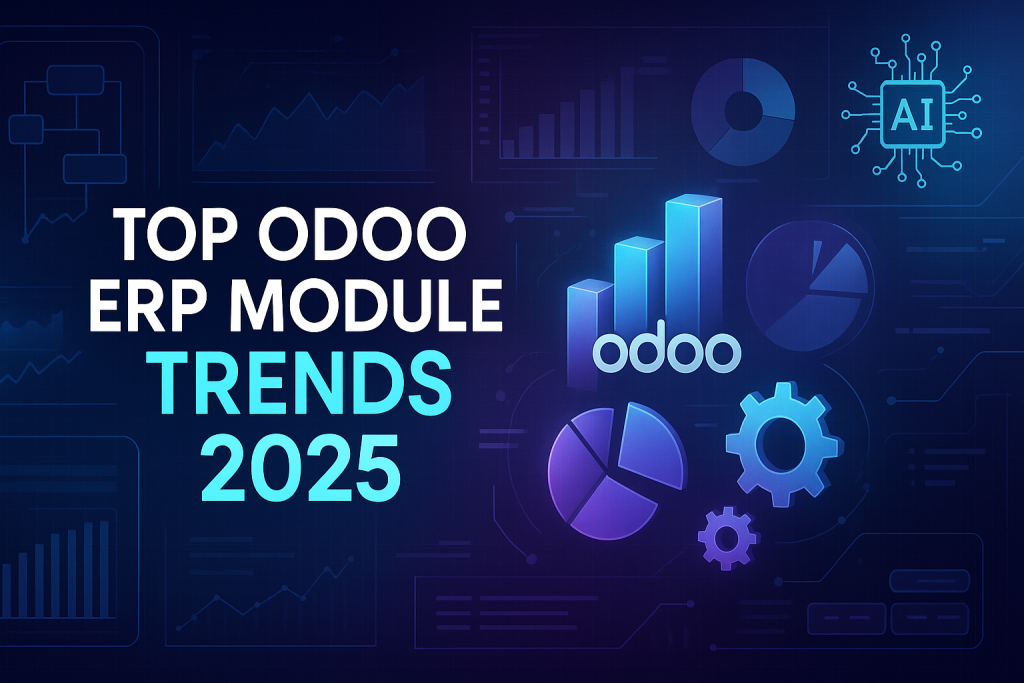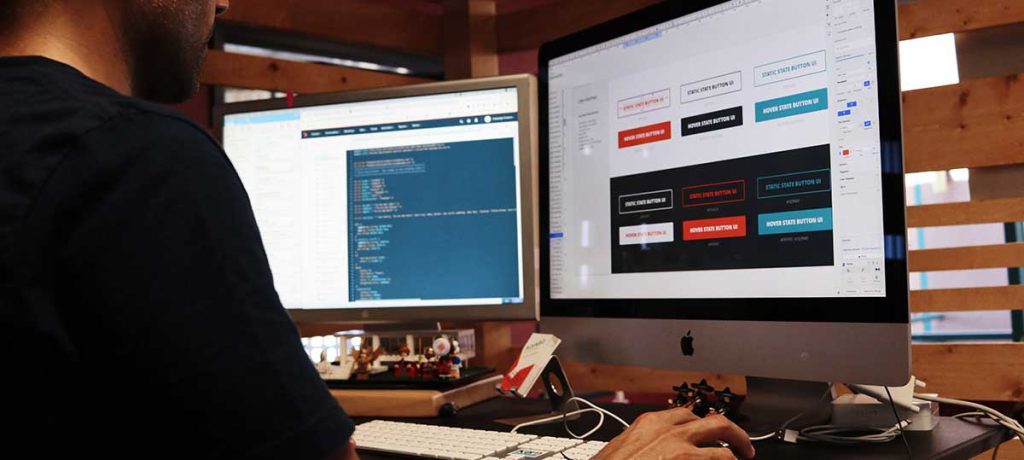
In Dubai, digital transformation is no longer a buzzword. It is survival. Whether you are running a family shop in Deira or scaling an e-commerce brand out of Dubai Marina, the pressure to stay sharp and efficient is constant. ERP systems have become part of that survival kit, and Odoo in particular has earned attention for being modular, relatively affordable, and adaptable to how local businesses actually work.
The bigger question, though, is which modules are really shaping 2025. Let’s take a closer look at the Odoo ERP trends companies in Dubai are testing, and sometimes struggling to master.
1. AI-Powered Analytics and Forecasting
Data without context is just noise. More firms in the UAE are waking up to the fact that flashy dashboards do not mean much unless they can drive action. That is where Odoo’s AI-powered analytics modules are shifting from “nice to have” to “we can’t operate without this.”
A trading company in Jebel Ali, for example, can now forecast container demand weeks ahead and slash storage costs. Restaurants downtown are testing AI that adjusts purchase orders before food turns into waste. The pay-off is leaner planning, fewer boardroom debates, and savings that actually show up on the balance sheet.
Still, not every firm trusts the numbers completely. Algorithms are only as good as the data fed into them, and some managers quietly worry about over-reliance.
2. Integrated E-Commerce and Omnichannel Sales
Dubai shoppers do not really separate online from offline anymore. You might check out shoes in the Mall of the Emirates and, before reaching the car park, compare prices on your phone.
Odoo’s e-commerce and POS modules are helping businesses stitch these touchpoints together. Think unified inventory across website and store, mobile-first checkout flows, and even AI-driven product recommendations. Fashion brands and electronics retailers appear to be leading here, but the model is spreading fast.
3. Advanced HR and Workforce Management
The UAE workforce in 2025 looks nothing like it did five years ago. Between hybrid teams, freelancers, and remote consultants, HR is no longer just about payroll.
Odoo’s HR module has expanded quietly but significantly. Companies are testing AI filters to sort through overwhelming numbers of job applications, rolling out wellness dashboards, and experimenting with collaboration tools that balance time zones.
That said, there is pushback. Some hiring managers are not convinced AI can fairly evaluate diverse candidates. It is a valid concern, yet adoption keeps growing, perhaps because the alternatives are even more chaotic.
4. Financial Automation and Compliance Tools
Ask a CFO in Dubai what keeps them up at night and compliance is likely near the top. VAT, cross-border invoicing, shifting tax frameworks, none of it is light reading. For many, automation feels less about efficiency and more about self-defense.
Odoo’s finance modules in 2025 are addressing this with automated reconciliation, real-time expense tracking across multiple currencies, and compliance alerts tuned to GCC rules. It is not glamorous, but it is the kind of quiet work that prevents six-figure fines.
5. Supply Chain Transparency and Sustainability
Sustainability may have once sounded like a Western talking point, but it is creeping into supply chain discussions in Dubai. Retailers are starting to face questions about sourcing, ethics, and carbon footprints.
Odoo’s supply chain modules now let customers track shipments in real time, help exporters run carbon calculators for European buyers, and provide sourcing reports to safeguard reputation. These features are not mainstream in the UAE yet, but companies with international partners are feeling the pressure first.
6. Customer Experience (CX) Modules
Customer loyalty has always been fragile in Dubai, and in 2025 it is even more so. One clunky checkout and the buyer is gone.
Odoo’s CX modules are spreading for that very reason. Businesses are rolling out AI-driven customer segmentation, bilingual chatbots in Arabic and English, and unified dashboards that capture every customer touchpoint. For a café chain in Bur Dubai or a mid-sized electronics shop, that extra polish can be the difference between a repeat buyer and a lost sale.
7. Industry-Specific Customization
Odoo’s flexibility is not new, but what is interesting now is how industry-ready the modules are becoming. Clinics in Dubai Healthcare City are trying out compliance-specific setups, while Sharjah manufacturers are leaning on pre-built automation packs.
For SMEs, this shift matters. Instead of burning resources on custom builds, many are opting for ready-to-go modules. They are cheaper, faster, and less painful to maintain, though you do sacrifice some uniqueness in the process.
Why Businesses in Dubai Are Betting on Odoo ERP
Look closely at all these trends and a pattern emerges. Companies want ERP systems that are modular, affordable, and scalable. Odoo checks those boxes. Unlike heavyweight platforms that take an army of consultants and months to set up, Odoo lets firms start small, for example with accounting or sales, and expand as they grow.
Yes, SAP and Oracle still dominate at the enterprise level. But for mid-sized firms in Dubai, the Odoo ERP solution is often the more practical bet. Even startups can dip in with the basics and add layers later.
Looking Ahead: The Future of ERP Modules
ERP is not a dusty back-office tool anymore. It is becoming a driver of growth. The themes for 2025 are clear: intelligence, personalization, accountability. Companies that adopt these Odoo modules early will likely weather market shifts better and scale with fewer surprises.
Still, let’s be honest, no ERP rollout is smooth. Many underestimate the cultural and training hurdles. The firms that do best are usually those that prepare for the human side of change, not just the technical install.
FAQs
Q1: What makes Odoo ERP different from other ERP platforms?
It is open-source, modular, and affordable. Unlike SAP, firms in Dubai can pick only what they need and skip the rest.
Q2: Can small businesses in Dubai benefit from these trends?
Absolutely. SMEs often start with accounting or sales, then add HR or supply chain when the time is right.
Q3: Which module should a Dubai retailer adopt first in 2025?
Omnichannel sales modules make the most sense. They reflect how UAE shoppers move between in-store and online.
Q4: How does AI enhance Odoo modules?
It sharpens forecasting, speeds up hiring, and personalizes customer outreach.
Q5: Is Odoo ERP future-proof?
No system truly is. But Odoo’s open-source base and active developer community mean it adapts quickly, which makes it one of the safer long-term bets in the region.


